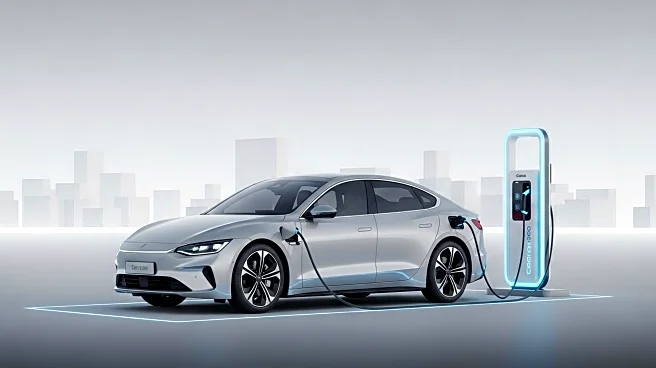What's Happening?
The automotive industry is under scrutiny once again as concerns arise over a potential 'Dieselgate' sequel. Transport & Environment (T&E) has highlighted that plug-in hybrid vehicles are emitting five times more than official tests claim, suggesting that automakers are attempting to pass off their vehicles as cleaner than they are. This follows the infamous 'Dieselgate' scandal where Volkswagen and other automakers were found to have manipulated emissions tests. T&E argues that carmakers are lobbying to eliminate EU rules that would better reflect pollution from plug-in hybrids, potentially leading to hundreds of thousands of extra polluting cars on European roads by 2035.
Why It's Important?
This development is significant as it underscores ongoing challenges in the automotive industry's transition to sustainable practices. The potential for another emissions scandal could undermine public trust and delay efforts to reduce carbon emissions. If automakers succeed in influencing regulations, it could result in increased pollution and hinder progress towards zero-emission vehicles. The situation highlights the tension between short-term profits and long-term environmental responsibility, with potential implications for regulatory frameworks and industry accountability.
What's Next?
The European Union is expected to address these concerns through revisions to the 'roadworthiness package' legislation, which aims to ensure accurate emissions reporting and accountability. This may involve systematic fleet screenings and roadside inspections to identify high-emission vehicles. The outcome of these regulatory efforts will be crucial in determining the future direction of the automotive industry and its commitment to reducing emissions.
Beyond the Headlines
The ethical implications of this situation are significant, as it raises questions about corporate responsibility and transparency. The industry's reliance on deceptive practices to maintain market advantage could lead to stricter regulations and increased scrutiny from environmental groups and policymakers. Long-term, this could drive innovation towards more sustainable vehicle technologies.









